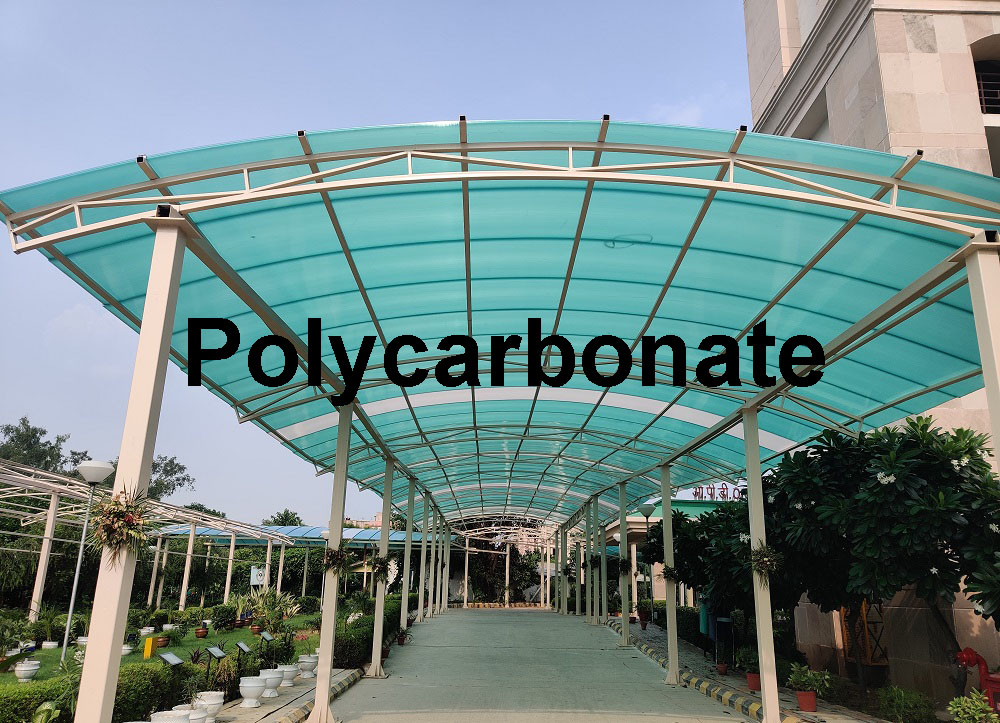Polycarbonate: Characteristics, Applications, and Advantages
Polycarbonate is a type of thermoplastic polymer that finds widespread use in various industries due to its unique properties. This polymer is formed from a structural unit called "carbonate," setting it apart from other polymeric materials.

Key Characteristics:
1. Transparency: One of the prominent features of polycarbonate is its high transparency, making it an excellent choice for manufacturing eyeglass lenses and windows.
2. Impact Resistance: Polycarbonate is highly resistant to impact, boasting approximately 250 times the resistance of glass, making it a preferred material for applications where durability is crucial.
3. Heat Resistance: This polymer can withstand high temperatures, making it suitable for use in automotive, electronic, and other industries.
Applications:
1. Eyewear Industry: The production of eyeglass lenses often involves the use of polycarbonate due to its high transparency and impact resistance.
2. Construction of Windows and Skylights: In building construction, polycarbonate is used as a resilient and transparent alternative to glass in windows and skylights.
3. Electronics and Computers: Some electronic components benefit from the desirable electrical properties of polycarbonate, making it a preferred material in their production.
4. Automotive Industry: Polycarbonate is used in the manufacturing of automotive components, including impact-resistant glass and other parts.
Advantages:
1. Lightweight: Polycarbonate is lighter than glass, enhancing the advantages of transportation and energy consumption.
2. Recyclability: This polymer is recyclable, presenting a significant environmental advantage.
3. Chemical Resistance: The resistance to many chemical substances makes polycarbonate a superior choice in various industries.
Conclusion:
Polycarbonate, with its combination of transparency, impact resistance, and diverse applications, holds a special place in various industries, including construction, automotive, and electronics. This polymer serves as an intelligent choice for applications requiring a blend of lightness, transparency, and resilience.
Polycarbonate, a versatile thermoplastic polymer, has become a staple in several industries due to its exceptional properties. Comprising a unique structural unit known as "carbonate," polycarbonate stands out among other polymeric materials. In this article, we will delve into the key characteristics, applications, and advantages of polycarbonate, exploring why it has gained prominence in diverse industrial sectors.
Key Characteristics:
1. Transparency:
One of the standout features of polycarbonate is its remarkable transparency. This property makes it an ideal choice for applications where optical clarity is essential. Industries such as eyewear manufacturing benefit significantly from polycarbonate due to its ability to produce clear and distortion-free lenses. Additionally, polycarbonate's high transparency makes it suitable for use in windows, providing an unobstructed view while ensuring durability.
2. Impact Resistance:
Polycarbonate exhibits exceptional resistance to impact, surpassing traditional materials like glass by a significant margin. The polymer's impact resistance is approximately 250 times greater than that of glass, making it invaluable in applications where protection against breakage is critical. This characteristic has led to widespread use in safety equipment, automotive components, and various other products requiring durability and reliability.
3. Heat Resistance:
The heat resistance of polycarbonate is another distinguishing feature that enhances its versatility. This polymer can withstand high temperatures without compromising its structural integrity. As a result, polycarbonate is employed in the production of electronic components, automotive parts, and other applications where exposure to elevated temperatures is a consideration.
Applications:
1. Eyewear Industry:
The eyewear industry has embraced polycarbonate for the production of lenses due to its unique combination of high transparency and impact resistance. Eyeglass wearers benefit from lightweight and durable lenses that provide optical clarity while minimizing the risk of breakage.
2. Construction of Windows and Skylights:
In the construction sector, polycarbonate serves as a resilient alternative to glass in the fabrication of windows and skylights. The polymer's impact resistance ensures a durable solution that can withstand harsh weather conditions, making it particularly suitable for architectural applications.
3. Electronics and Computers:
Polycarbonate finds use in the electronics and computer industries, where its desirable electrical properties contribute to the production of various components. The polymer's ability to maintain its integrity at high temperatures makes it a preferred material for electronic enclosures, connectors, and other parts.
4. Automotive Industry:
The automotive industry extensively utilizes polycarbonate for manufacturing components such as impact-resistant glass, headlight lenses, and interior trim. The polymer's lightweight nature contributes to fuel efficiency, and its impact resistance enhances safety in automotive applications.
Advantages:
1. Lightweight:
Polycarbonate's lightweight nature is a significant advantage, especially when compared to traditional materials like glass. This characteristic contributes to fuel efficiency in the automotive industry and facilitates easier handling and transportation in various applications.
2. Recyclability:
An environmentally conscious feature of polycarbonate is its recyclability. The ability to recycle polycarbonate not only reduces waste but also aligns with sustainable practices, making it an attractive choice for industries seeking eco-friendly solutions.
3. Chemical Resistance:
Polycarbonate exhibits resistance to a wide range of chemical substances, enhancing its durability in diverse environments. This chemical resistance makes polycarbonate a preferred material in industries where exposure to potentially corrosive elements is a concern.
Conclusion:
In conclusion, polycarbonate stands as a versatile and valuable polymer in the world of materials science. Its unique combination of transparency, impact resistance, and heat resistance has positioned it as a preferred choice in various industries. From the production of eyewear to applications in construction, electronics, and automotive manufacturing, polycarbonate continues to play a vital role. As industries increasingly prioritize lightweight, durable, and environmentally friendly materials, the significance of polycarbonate is likely to grow, cementing its place as a smart choice for applications requiring a blend of lightness, transparency, and resilience.
Read More: